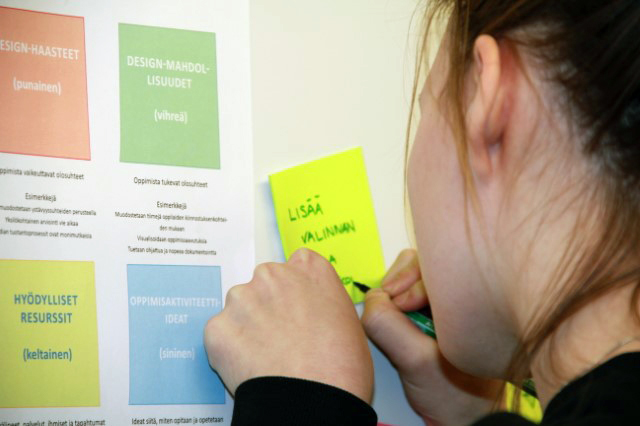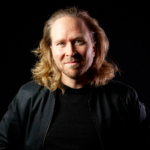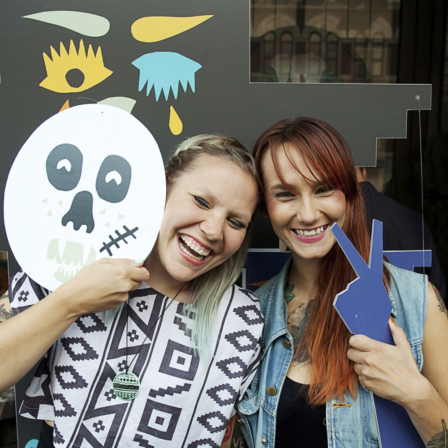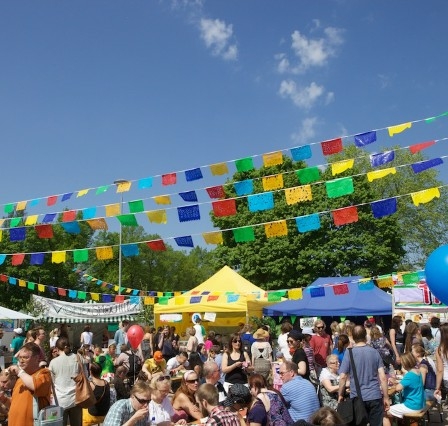Pilot projects run by Sitra’s New Education Forum will help to highlight the challenges associated with education in the future and explore the ways in which Finnish education can be improved in practical terms. Examples of different types of pilot projects include the Upper Secondary School Living Lab and the Phenomenon Learning Week.
Social challenges, such as the transformation of working life, digitisation, growing inequality and multiculturalism, and globalisation are also affecting the sector. The problems are multidimensional and difficult to solve merely by making plans and putting them into practice. There also has to be flexible experimentation.
“We are using pilot projects to test whether the smart ideas that arise in forum discussions are actually valid. The lessons learnt from the experiments will be reflected in the forum’s work. In this way, the notion of a new approach to education is born from theory and practice together,” says Kalle Nieminen, experimental culture expert at Sitra.
Sitra’s New Education Forum consists of people from various sectors of society and, since December, it has been considering today’s educational challenges and opportunities. A public call for ideas produced 135 on the subject of education. Among these and the ideas submitted by the forum members themselves, 11 were chosen to be put to the test with pilot projects.
In addition to the Upper Secondary School Living Lab and the Phenomenon Learning Week trials, the following were tried out: the OPE Talks video-sharing service for teachers, the Education Model Canvas tool, Digital Competence Indicators and Dream Club.
The pilots are being carried out in Helsinki, Oulu and Nurmijärvi in collaboration with local and city authorities, universities and businesses.
Students involved in the planning
Two of the pilot projects relate to new approaches, where students are actually involved in the planning of teaching/instruction. The Upper Secondary School Living Lab is based on a model where the head teacher, staff and students together plan ways to improve the prerequisites for learning. This takes place in weekly workshops run by a selected group. The trial is being conducted in collaboration with the Nurmijärvi Co-educational Upper Secondary School.
“The teacher should act as the students’ guide and enabler, helping them to structure their own lives and, at the same time, function in the community. This can be done by including students in the planning of teaching and instruction,” says Mikko Jordman, the school’s head teacher. “Students have to feel that what they are doing is important right now.”
During the workshop sessions, some thought is given to the challenges faced by the school, new ideas are put forward and projects that are small in scope are designed for the following week. The objective is to develop a culture that works to respond to the needs associated with improved learning. The pilot projects are being carried out as a series of three workshops, and in the periods in between the teams will conduct quick practical experiments. The trial’s design is based on Edukata, a participatory design model from the Media Lab Helsinki at Aalto University.
The idea behind the other trial, the Phenomenon Learning Week, is to try out new operating models at senior school level that require culture change. At the same time, students can plan their own learning. The trial focuses on phenomenon-based learning and doing things together. It is being conducted in collaboration with Ritaharju School in Oulu. “We expect the trial to take forward the variable learning process. We believe that this will, above all, boost students’ motivation for learning,” says Pertti Parpala, the head teacher.
In May, the upper comprehensive school students at the school will be studying for a week using the phenomenon-based learning method in groups consisting of pupils from different grades. The week will consist of theoretical and practical sessions. The students have themselves been able to have a say in what subjects are dealt with during the week. Suggestions include spending money, the world we share, Europe and further studies and work.
Sharing good practices with OPE Talks
The educational sector today is coming up with ideas for many new learning solutions, and putting them into practice, but the word is simply not getting around. One of the pilot projects is a response to this challenge. OPE Talks is based on the notion of a flexible approach to sharing best practices in teaching and learning. The purpose is to promote a culture of sharing and spread best practices so that they become available to everyone. “We have a good deal of know-how, which remains in the classroom or with individual teachers,” says Lauri Järvilehto of Filosofian akatemia.
During the trial an OPE Talks website was created at www.opetalks.com (in Finnish), where anyone can share best practices in teaching and learning in the form of a video. The video may be a talk, a lesson, the presentation of a new method, the demonstration of a tool or anything else connected with learning. “The idea is also to discover whether a video sharing service could become a driving force for learning in the new age, which teachers can use across Finland,” Järvilehto adds.
Pilot projects shape future education challenges
The group of 31 people that make up the forum consists of policymakers from different sectors of society: science and education, business and industry, the media, public administration, politics, culture and the arts, among others.
The forum has considered education with reference to various themes: a revitalising and flexible education system, education in the digital age, equality in education, the export of education and leadership.
Once the pilot projects have been completed, the forum will continue its work by honing the new education concept.
For further information, please contact:
New Education Forum Hannele Laaksolahti, hannele.laaksolahti@sitra.fi, 040 836 7036
Pilot projects: Kalle Nieminen, kalle.nieminen@sitra.fi, 050 387 9350
Communications: Heli Nissinen, heli.nissinen@sitra.fi, 040 767 1822
The work of the New Education Forum and the pilot projects they conduct can be monitored and remarked upon on Twitter using the hashtag #uusikoulutus, at https://www.sitra.fi/uusi-koulutus, and on Facebook at Uusi koulutus -ryhmä.
Participants in the New Education Forum.
Ideas selected for the trials (in Finnish).




Recommended